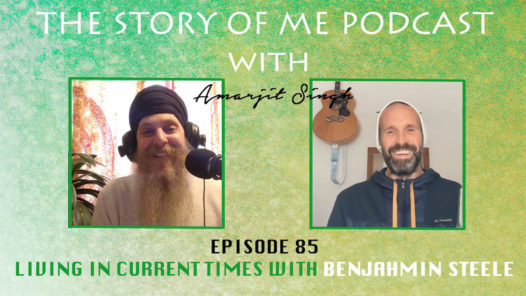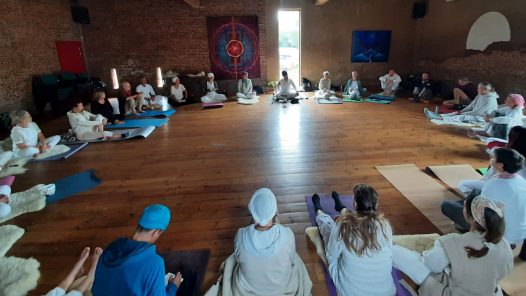Amarjit discusses why people have difficulty making decisions. He talks about how some people are stuck in their mind, while others may be too emotionally impulsive. He then talks about emotional awareness and its relationship to decision making. He continues with a discussion on how to use the emotions for self-awareness of your habit patterns. Then how these emotions effect your decision making process. He goes on to explain that it is necessary to incorporate the emotions in making decisions. He draws a distinction between experiencing emotions and reacting to emotions. He concludes the discussion by talking about how the emotions and mind are both necessary in making decisions. Amarjit explains the proper way to make decisions is with the clarity of the mind, the awareness of the emotions, and the love of the heart.
EMOTIONALLY THOUGHTFUL DECISIONS FROM THE HEART
Most of the time we try to be logical, analytical and thoughtful in our decision making process. Sometimes we attempt to exclude the emotions because we feel that they interfere with making the “right” choice. However, making decisions with just your head works really well only when the conclusion can be derived from a mathematical computation. If it can’t, this is an incomplete way to make decisions. This is also what causes indecisiveness and over-thinking; the result of not being emotionally connected with what it is we are trying to decide. We even know the other extreme – decisions made without thought, without understanding. These are impulsive, emotionally charged decisions that overtake our free will. So how are we supposed to make decisions that are in alignment with our true nature?
The proper way to make decisions is with the clarity of the mind, the awareness of the emotions, and the love of the heart.
A mind at peace is clear. When a lake is disturbed with activity dirt from the bottom rises and mixes with the water making visibility difficult. However, once the dirt settles the bottom is clearly visible through the tranquil water. Your mind is the same: when it is at peace, you have clarity. This means letting go of attachments as desires cloud the water. Desires cause an internal storm of emotions moving us to act on conscious and unconscious impulses. To make complete decisions you have to be emotionally aware. You need to be present, accepting, and open to understand emotions.
Often we attempt to suppress emotions, distancing ourselves from them. The distance from one emotion is in direct proportion to the distance of others. You may take a pill to reduce depression. However, that same pill also lessens the happiness you experience. Remember when you were young and you laughed; you laughed from the heart. You were so open that when you laughed your heart center vibrated. Your entire body laughed. Now when you laugh, you experience a watered down version. The uncontrollable laughter has been controlled through the repression of other emotions. The emotions have been diluted so that you don’t feel them as strongly. This is the way you “control” your emotions. This is the result of not being emotionally open and present; creating a distance between you and your emotions.
We create a distance between our emotions and ourselves because we want to protect ourselves from being hurt, or out of control. When we put up emotional barriers between others and ourselves, what we are really doing is creating a distance within ourselves between our emotions and us. This “protection” means judgment exists. Judgment does not allow for authentic understanding. You may think you understand and that is why you are putting up this wall, but if you truly understood there would be no barriers; you would be celebrating yourself. You aren’t fully embracing yourself if you are holding back, and hiding. This creates duality. No peace, no wholeness; cloudy disturbances in the lake.
Another challenge with being emotionally present is we have been conditioned that emotions aren’t helpful. We are ashamed of some of our feelings. Again, this means judgment exists. As much as you believe you understand, you are just scratching the surface. Don’t fool yourself this superficial understanding is akin to pop psychology, not true self-awareness. Once you are able to let go of the judgment a deeper understand will be visible through the clarity of the mind. Emotions are the greatest tool for self-awareness.
The first step in emotional awareness is being present with the emotion: you need to feel the emotion, experience it. If you feel angry, allow yourself to feel it; take note of what it is doing to you physically and mentally. Feel your heart beat faster, your body temperature rise, your breath increase in pace and depth. Don’t think about it – feel it. You need to learn to feel emotions instead of thinking about them.
There is nothing wrong with experiencing emotions. In fact, the opposite is true: there is something wrong with not experiencing and relating to emotions. Emotions are the colors on your pallet. The wider the range of emotions you experience the more colorful you can be in your expression. The better you understand them, the more depth you will posses. To be clear there needs to be a distinction between experiencing emotions and reacting to emotions.
Emotions should not dictate your behavior, but they should guide your attention. When you feel angry feel it. Just because you are feeling an emotion does not mean that you need to act upon it. Moreover, if you are busy acting, you are reducing your capacity to create awareness of the emotion.
Learn to “feel” emotions instead of thinking about them. Feel the emotion, and then think about what caused the emotion. Don’t think about how you feel. Feel the emotion, and think about why you are experiencing the emotion. Then think about what the emotion is causing you to want to do, or not do. Then you can see if this is in alignment with your heart.
Often we confuse decisions made from the heart, with decisions influenced by emotion. Sometimes they can be the same, but many times they are not. In order to make good decisions you need to create awareness mentally and emotionally.
Once you understand the mental and emotional aspect you can put this into the context of your soul’s purpose. What decision is in alignment with my soul’s intention? This is where you project from the heart center and commit to your intention.
If you are constantly reacting or suppressing emotions there is no awareness. You have to participate emotionally; you need to be emotionally present. This all begins with the self. If you have self-love you are not ashamed of your feelings and you experience them more fully. Without self-love there is judgment. Judgment and understanding cannot exist together. In order to understand, you must accept and be present – be mindful. Understanding and love are synonyms. Love yourself! Understand yourself! Then it will be easy to follow your heart.
Submit your questions: https://www.thestoryofmepodcast.com/contact/
Podcast Facebook Group: https://www.facebook.com/groups/thestoryofmepodcast/
Visit our sponsors: https://www.singhflutes.com/
Music courtesy of http://www.aykanna.com/







